737-215-3211

Puppy Dental Care: Keeping Your Puppy's Teeth Healthy
Proper dental care for puppies is crucial for several reasons. Firstly, it helps maintain good oral hygiene and prevents various dental problems such as tooth decay, gum disease, and bad breath. Additionally, poor dental health can lead to systemic health issues, affecting vital organs like the heart and kidneys.
By taking proactive measures to care for your dog's teeth, you can ensure their overall well-being and longevity. Here's everything you need to know about your dog's dental health!
The Common Puppy Dental Problems
Just like humans, puppies are prone to certain dental issues. Understanding these problems can help you identify them early and seek appropriate treatment. The most common dental problems in puppies include:
-
Teething Discomfort: As puppies lose their baby teeth and adult dog's teeth emerge, they may experience discomfort or pain. Symptoms include increased chewing, drooling, and sometimes a slight bleeding of the gums.
-
Retained Deciduous Teeth: Sometimes, a puppy's baby teeth don't fall out as the adult dog's teeth come in. This is particularly common in smaller breeds. It can lead to crowding and misalignment of the new teeth, potentially causing dental problems later in life.
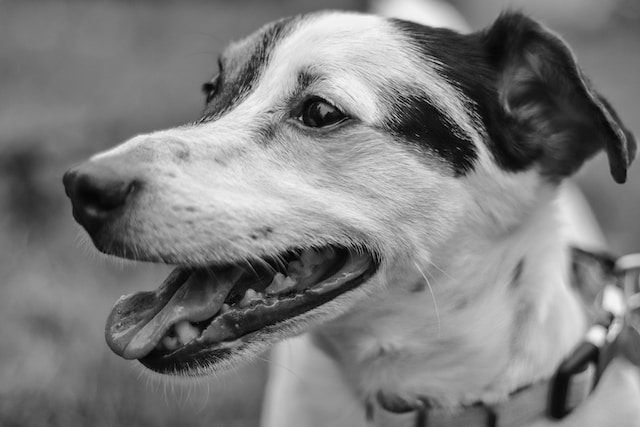
-
Misalignment of Teeth (Malocclusion): This occurs when the teeth don't align properly as they grow. It can cause difficulty in eating, and oral injuries, and ensures a clean dog's mouth.
-
Plaque and Tartar Buildup: Even in puppies, plaque (a film of bacteria) can accumulate on teeth, hardening into tartar if not removed.
-
Gingivitis: This is the inflammation of the gums, often a result of plaque buildup. Symptoms include red, swollen gums, and it can lead to more serious gum diseases if not treated.
-
Broken Teeth: Puppies are curious and a dog chews almost anything, but chewing hard objects can cause teeth to crack or break. This can be painful and may lead to infection or more serious dental issues. Give your pup appropriate dog dental chews and dog toys to prevent this from happening.
-
Oral Infections: Puppies may be more susceptible to infections in the dog's mouth due to their developing immune systems.
-
Periodontal Disease: Though more common in older dogs, periodontal disease can start at a young age if dental health is neglected. It involves the deterioration of the supporting structures of the teeth (gums, bone) and can lead to tooth loss.
Signs of Dental Issues in Puppies
Recognizing the signs of dental issues in puppies is crucial for timely and effective treatment. Here are common indicators that a puppy may be experiencing dental problems:
-
Bad Breath: While a dog's breath is typically not offensive, a persistent bad odor from the dog's mouth can indicate dental disease, issues, or infections.
-
Red, Swollen, or Bleeding Gums: Inflammation or bleeding of the gums can be a sign of gingivitis or other gum diseases.
-
Difficulty Eating or Loss of Appetite: If a puppy shows reluctance to eat, chews on one side, or drops food, it may be due to dental pain.
-
Excessive Drooling: While some drooling is normal, particularly in certain breeds, excessive drooling can indicate oral discomfort or dental problems.
-
Pawing at the Mouth: If a puppy frequently paws at its mouth or rubs its face against objects, it could be trying to relieve dental discomfort.
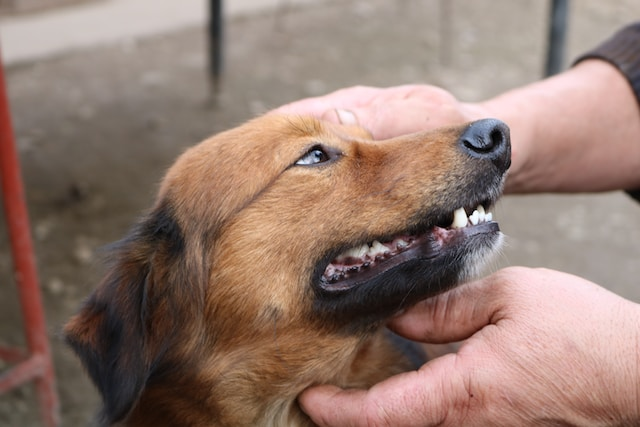
-
Visible Tartar or Plaque: Yellow or brown buildup on the teeth near the gum line is a sign of plaque and tartar accumulation.
-
Loose or Missing Teeth: While it's normal for puppies to lose their baby dog's teeth, premature tooth loss or visibly loose teeth can be concerning.
-
Changes in Chewing Habits: If a puppy suddenly prefers softer foods or chews with only one side of the mouth, it might be due to dental pain.
-
Discolored Teeth: Teeth that are brown, yellow, or have spots may indicate decay or other dental problems.
-
Bumps or Lumps in the Mouth: Any unusual growths or swellings inside the mouth should be checked by a veterinarian.
-
Bleeding or Discharge from the Mouth: Any signs of blood or pus around the dog's teeth or gums are a red flag for serious dental issues.
-
Behavioral Changes: Irritability, lethargy, or a decrease in playfulness can be signs of discomfort or pain from a dog's dental hygiene issues.
Preventive Measures for Pet Dental Care
Preventive measures are crucial to keep your dog's teeth clean and healthy. Establishing good dog dental care habits early on can prevent many common dental issues. Here are key preventive measures for dog dental care:
-
Brush Your Dog's Teeth, Regularly: Start brushing your puppy's teeth early to acclimate them to the process. Use a dog toothbrush designed for dogs and pet-safe toothpaste. Aim for daily brushing. When your dog's teeth brushed even a few times a week can significantly reduce plaque and tartar buildup.
-
Proper Diet: Feed your puppy a balanced diet specifically formulated for their age and size. Avoid foods that are high in sugar or carbohydrates, which can contribute to tooth decay. Some specially formulated dental treats, like Omega Fields Smart Hearts Dog Treats, and diets can help reduce plaque and tartar buildup.
-
Chew Toys: Provide appropriate chew toys, like Rethink Pet Dental Bone Chew Bacon Scented Dog Toy, that can help massage the gums and reduce plaque. Avoid hard objects like bones or antlers that can cause tooth fractures.
-
Regular Veterinary Check-ups: Regular dental check-ups with a professional vet help catch and address dental issues early.
-
Dog Dental Treats and Water Additives: Use dental treats approved by the Veterinary Oral Health Council (VOHC) as part of your dog's teeth-healthy dental routine. Water additives designed for the dog's oral health can also help reduce plaque-forming bacteria.
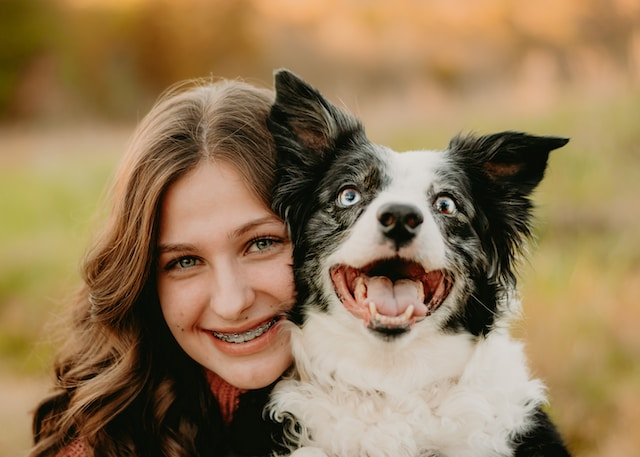
-
Avoiding Unsupervised Chewing: Monitor your puppy during chew sessions to ensure they don’t chew on inappropriate items that can damage their teeth.
-
Teething Comfort: Provide suitable teething toys to soothe sore gums during the teething phase. Frozen dog dental treats or toys can provide relief from teething discomfort.
-
Oral Examinations at Home: Regularly check your puppy’s mouth for any signs of dental issues such as red gums, bad breath, or loose teeth. Familiarizing your puppy with having their mouth and teeth touched can make veterinary examinations and home care easier.
-
Early Intervention: If you notice any signs of dental problems, consult with your veterinarian immediately for advice and treatment.
Choosing the Right Toothbrush and Toothpaste
When it comes to brushing your puppy's teeth, selecting the right toothbrush and toothpaste is essential. Here's what you should keep in mind:
-
Toothbrush: Choose s toothbrush with a small head and soft bristles. Look for brushes specifically designed for puppies, as they are gentle on their teeth and gums.
-
Dog Toothpaste: Never use human toothpaste for your puppy, as it can be toxic. Instead, opt for canine toothpaste formulated for dogs, available in enticing flavors like chicken or beef, making brushing a more enjoyable experience for your furry friend.
Effective Techniques for Brushing Your Puppy's Teeth
Brushing your pet's teeth may seem like a challenging task, but with the right technique, it can become a stress-free routine. Follow these steps for effective brushing:

-
Choose the Right Time: Begin when your puppy is calm and relaxed, such as after a meal or exercise. Make tooth brushing a part of your puppy's daily routine, so they expect it.
-
Select Appropriate Tools: Use a dog-safe toothbrush specifically designed for dogs. There are various sizes and types, including finger brushes, which might be more comfortable for both you and your puppy. Choose dog-specific toothpaste with flavors that appeal to dogs, like chicken or beef.
-
Introduce Gradually: Start by introducing your pup to the toothbrush and toothpaste gradually. Allow them to sniff and taste the toothpaste to get accustomed to the new flavors.
-
Positioning: Gently hold your puppy's muzzle and lift their lips to access their teeth. Be patient and provide positive reinforcement throughout the process.
-
Brushing Motion: Use gentle, circular motions to brush your puppy's teeth. Pay extra attention to the gum line, where plaque and tartar tend to accumulate.
-
Cover All Areas: Aim to eventually brush all teeth, paying particular attention to the back molars, which are more prone to tartar buildup. Don’t forget the inside surfaces of the teeth, although these areas tend to accumulate less plaque due to the tongue's constant movement.
-
Reward System: After each successful brushing session, reward your puppy with praise, playtime, or a small treat. This positive reinforcement helps create a positive association with toothbrushing.
Remember, consistency is key. Over time, your dog will become more comfortable with the process, making it easier for both of you.
Alternatives to Brushing for Dog Dental Care
While brushing remains the gold standard for maintaining oral health in puppies, several alternatives can support dental care, especially if brushing is challenging. These alternatives can be used in conjunction with brushing or as standalone options:
-
Dog Dental Chews and Treats: The best dental chews are designed to reduce plaque and tartar buildup as the puppy chews. Choose products approved by the Veterinary Oral Health Council (VOHC). Make sure the size and texture are appropriate for your puppy to avoid choking hazards or tooth damage.
-
Dental Diets: Some pet food brands offer dental diets specifically formulated to help maintain dog dental care health. These foods are usually larger and have a texture that helps clean the teeth when chewed.
-
Water Additives: These are liquids added to your puppy's drinking water that helps reduce plaque and freshen breath. Ensure they're specifically designed for dogs and are free of xylitol, which is toxic to dogs.
-
Dental Wipes: These can be used to wipe the teeth and gums, helping to remove plaque and for better gum health. They're a good option if your puppy is resistant to brushing but allows handling of their mouth.
-
Dental Toys: There are various toys available that are designed to help clean teeth through chewing action. Look for durable, non-toxic materials that won’t break into small, swallowable pieces.
-
Oral Sprays and Gels: These dental products can help reduce bacteria in the mouth and freshen your dog's breath. They're applied directly to the puppy and adult teeth and gums and can be a quick alternative to brushing.
-
Professional Cleanings: Regular professional cleanings by a veterinarian are an important part of dental care, especially for hard-to-remove tartar and for a thorough oral health check.
-
Chew Bones and Rawhide: Natural chew options like rawhide or specially designed chew bones can help clean teeth. Monitor your puppy to ensure they don’t choke or ingest large pieces.
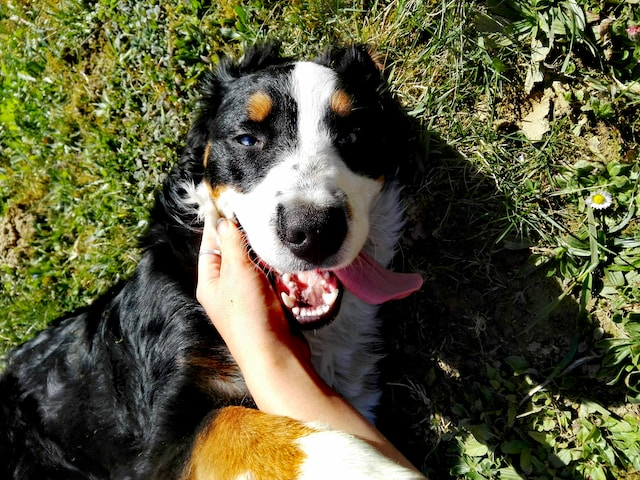
Frequently Asked Questions
How often should I brush my puppy's teeth?
Aim to brush your puppy's teeth at least three times a week. However, brushing your dog's teeth daily is ideal for optimal dental care.
Are dog dental chews safe for puppies?
Yes, dental chews specifically designed for puppies are safe and beneficial for their dental health. Choose reputable brands and provide them in moderation.
What should I do if my puppy refuses to let me brush their teeth?
Try gradually acclimating them to the process. Start by letting them taste the dog-safe toothpaste and gently rub their gums and teeth with your finger. Praise and reward them for cooperation. Introduce the toothbrush slowly, and continue to use positive reinforcement. If difficulties persist, consult a veterinarian or a professional dog trainer for additional guidance.
When should I schedule my puppy's first dental cleaning?
The timing of your puppy's first dental cleaning depends on their specific needs. Your veterinarian will advise you on the appropriate time based on your dog's oral health to avoid dental disease.
Can dental problems in puppies affect their overall health?
Yes, dental health problems in puppies can affect their overall health. Poor dental health can lead to issues such as infections, which can spread to other parts of the body, including vital organs, and can also impact your pup's eating habits and nutritional intake.
Does my dog need regular dental cleanings from professionals?
Yes, your dog needs regular professional dental cleanings as part of their overall healthcare routine, to prevent dental diseases and maintain oral health.
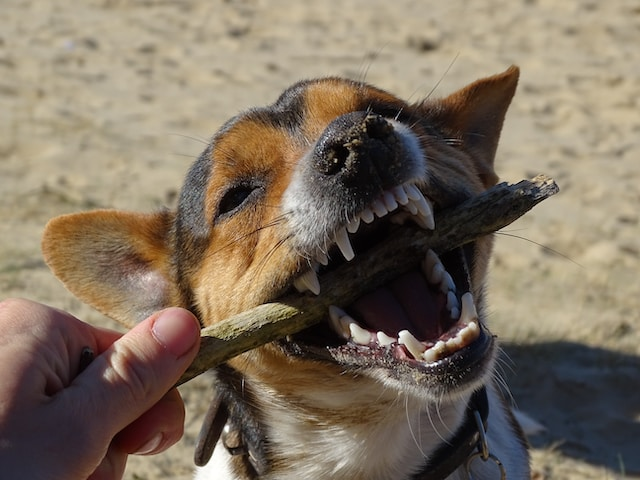
Promote Healthy Dental Habits With Puppy Fever Pro Products!
Keeping your dog's teeth clean and healthy is one of the responsibilities of dog owners. Regular teeth cleaning is a must for a happy, safe, and healthy pup! However, you must use the right pet-safe products from Puppy Fever Pro to ensure they're safe for your dogs.
We have dog grooming supplies, crates, training products, and pet accessories specifically designed and made for dogs, chosen by dog owners and lovers. Don't hesitate to contact us to learn more about our puppy products and services.


Leave a comment